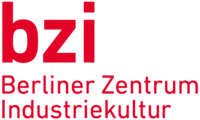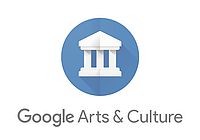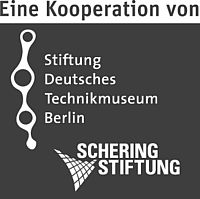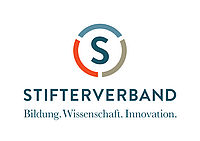Berlin Center for Industrial Heritage
In 2012, the Stiftung Deutsches Technikmuseum Berlin and HTW Berlin – University of Applied Sciences founded the Berlin Center for Industrial Heritage (bzi). The project is financed by the European Regional Development Fund. The bzi’s mission is to raise popular awareness for industrial heritage. In the last few years it has become an important leader, liaison, and source of information in this area.
Cornelsen
In May 2019, the Stiftung Deutsches Technikmuseum Berlin teamed up with Cornelsen Verlag GmbH and Cornelsen Experimenta GmbH to put on free educational events and training sessions for teachers on specific topics relating to science and technology. The goal of this partnership is to encourage teachers to collaborate more closely with the Museum and to use it as a resource for their students.

Google Arts & Culture
The Stiftung Deutsches Technikmuseum Berlin entered into a partnership with Google Arts & Culture in 2019. The project is part of the Deutsches Technikmuseum’s initiative to make its collection available for online consultation. State-of-the-art technology and digital story-telling provide a broader public with novel access to the Museum’s exhibitions. The Deutsches Technikmuseum’s presence on Google Arts & Culture thus increases access more generally to exhibits related to the cultural history of technology. Digital stories provide insight into the Museum’s activities, spread knowledge about its exhibitions, and heighten awareness about the contents of its collection and the topics it addresses – all made easily accessible to everyone around the globe, any time of day.
Junior Campus
As part of the “On the Move” exhibition, the Deutsches Technikmuseum and the BMW Group have been putting on a free program for daycare centers and school groups since 2012. It is called Berlin Junior Campus.
Modeled on the BMW Group’s own Junior Campus, it offers a range of didactic workshops on the topics of mobility, sustainability, and science and mathematics. Three hundred square meters of space are set aside for a Vehicle Workshop and a Math-Making Room. Junior Campus also puts on special workshops for families, birthday parties, and school vacation periods.
RBB´s Radio Eins
Since 2010, the Stiftung Deutsches Technikmuseum Berlin has been hosting the discussion series “Forum Technoversum – Die Zukunftsdebatte im Deutschen Technikmuseum” (Forum Technoversum – Debating the Future in the Deutsches Technikmuseum). Several times a year, experts meet in the Museum to discuss current issues in technology and politics that are connected in some way to the Deutsches Technikmuseum. Since 2015, the media partner for the series has been Radio Eins, the RBB radio station. Radio Eins journalist and announcer Marie Kaiser moderates the series. Since 2020 the series is called "Man, Technology! Marie Kaiser talks to...", and there is always one person she discusses the topic with.
Schering Stiftung
The exhibition “Pills and Pipettes” deals with issues past and present relating to the chemical and pharmaceutical sector. It focuses on the Schering company, a former industry giant, using it as an example to provide young and old with broad insight into the world of chemical and pharmaceutical production. The exhibition opened in 2010 as a joint effort of the Stiftung Deutsches Technikmuseum Berlin and the Schering Stiftung. The exhibition and related events are funded by the Stifterverband für die Deutsche Wissenschaft.
VDI-Bezirksverein Berlin-Brandenburg
The Verein Deutscher Ingenieure – Bezirksverein Berlin-Brandenburg (Association of German Engineers – Berlin-Brandenburg Chapter) and the Stiftung Deutsches Technikmuseum Berlin began a partnership in 2013. Their common goal is to acquaint experts and a popular audience of all ages with the past, present, and possible future of science and technology. They are dedicated to supporting sustainable youth employment in science and technology, and they promote general awareness of how technology works, its development over time, and how it fits into a larger context.








